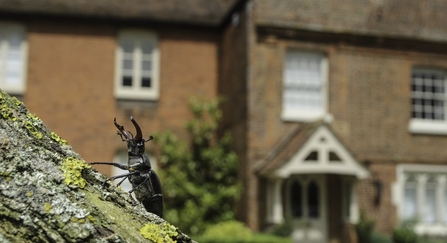Today, The Wildlife Trusts publish a new report that, for the first time, calls for people’s access to nature to be set in law. Planning – a new way forward: how the planning system can help our health, nature and climate, comes at a critical time for the Government’s Planning White Paper and the recently announced “pause” on planning reform.
Download the Planning report here
The newly named Department for Levelling Up, Housing and Communities has a huge opportunity to ensure the planning system improves lives by levelling up access to nature.
In the light of recent political developments, The Wildlife Trusts are calling for:
· A planning system which levels up people’s access to nature by setting a legally binding target so everyone, no matter where they live, can receive the benefits that nature provides. Evidence shows that almost half the population say they are spending more time outside than before the pandemic – but access to nature is deeply unequal and this exacerbates health inequalities, putting more strain on the NHS as it copes with the mental health crisis made worse by Covid.
· The Planning Bill to ensure that we have more space for nature. Last October, at his keynote address to the Conservative Party Conference, the Prime Minister said that his vision for 2030 included people “going for picnics in the new wild belts that now mark the landscape.” A year on, the Government has the perfect opportunity to keep its promise by including a new way of protecting land reclaimed for nature in the Planning Bill. If the Government is to reach its target of at least 30% of land for nature by 2030, a new designation – Wildbelt – is essential for protecting new land, currently of low biodiversity value, where nature can recover.
· Planning reforms that deliver the Government’s legally binding target in the Environment Bill to halt species decline by 2030. All Government departments need to consider how they can contribute to nature’s recovery – especially those involved in planning. This means a legal requirement for planning authorities to consider Local Nature Recovery Strategies when making planning decisions and ensuring nature protection policies and standards are not weakened.

